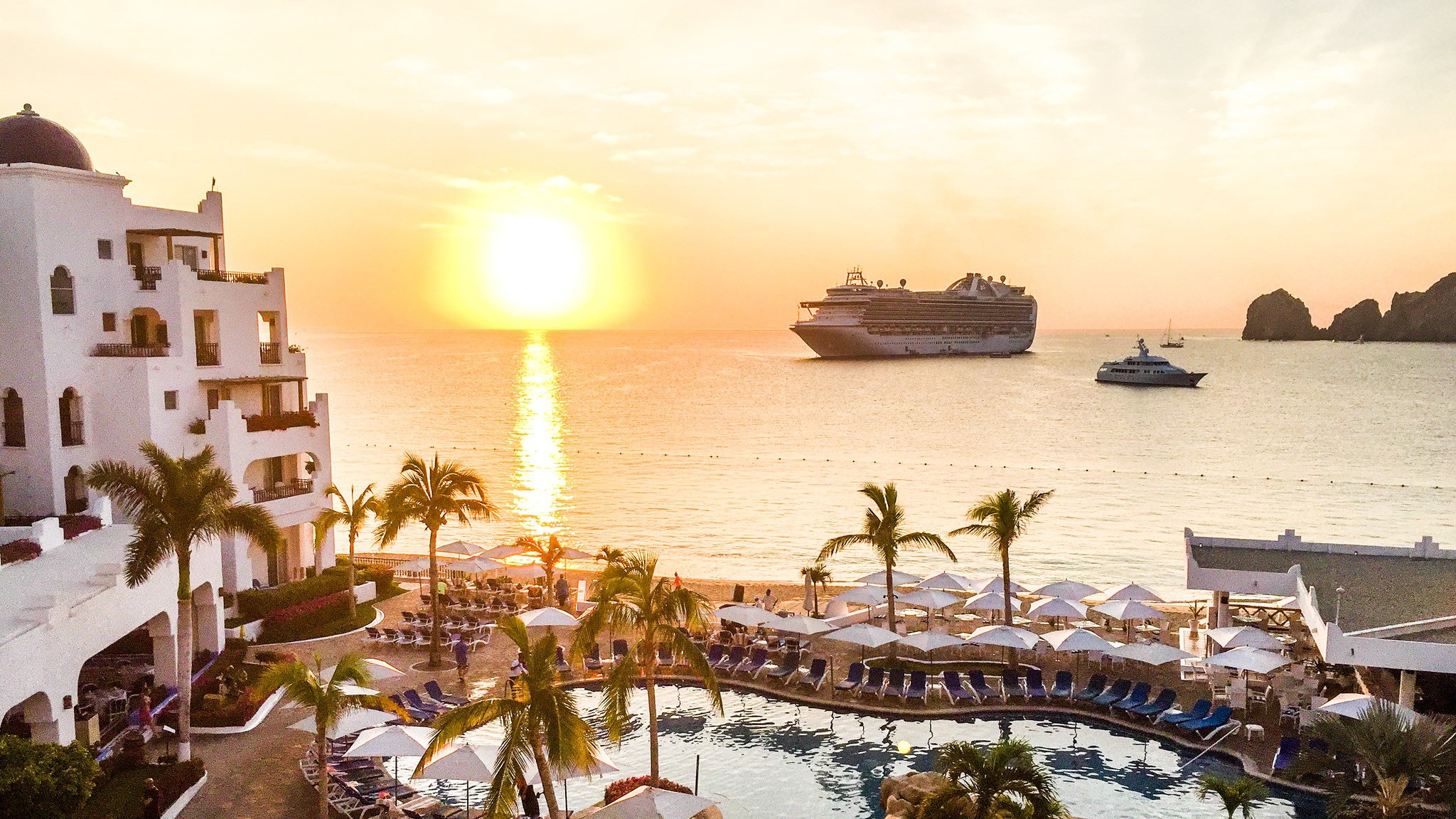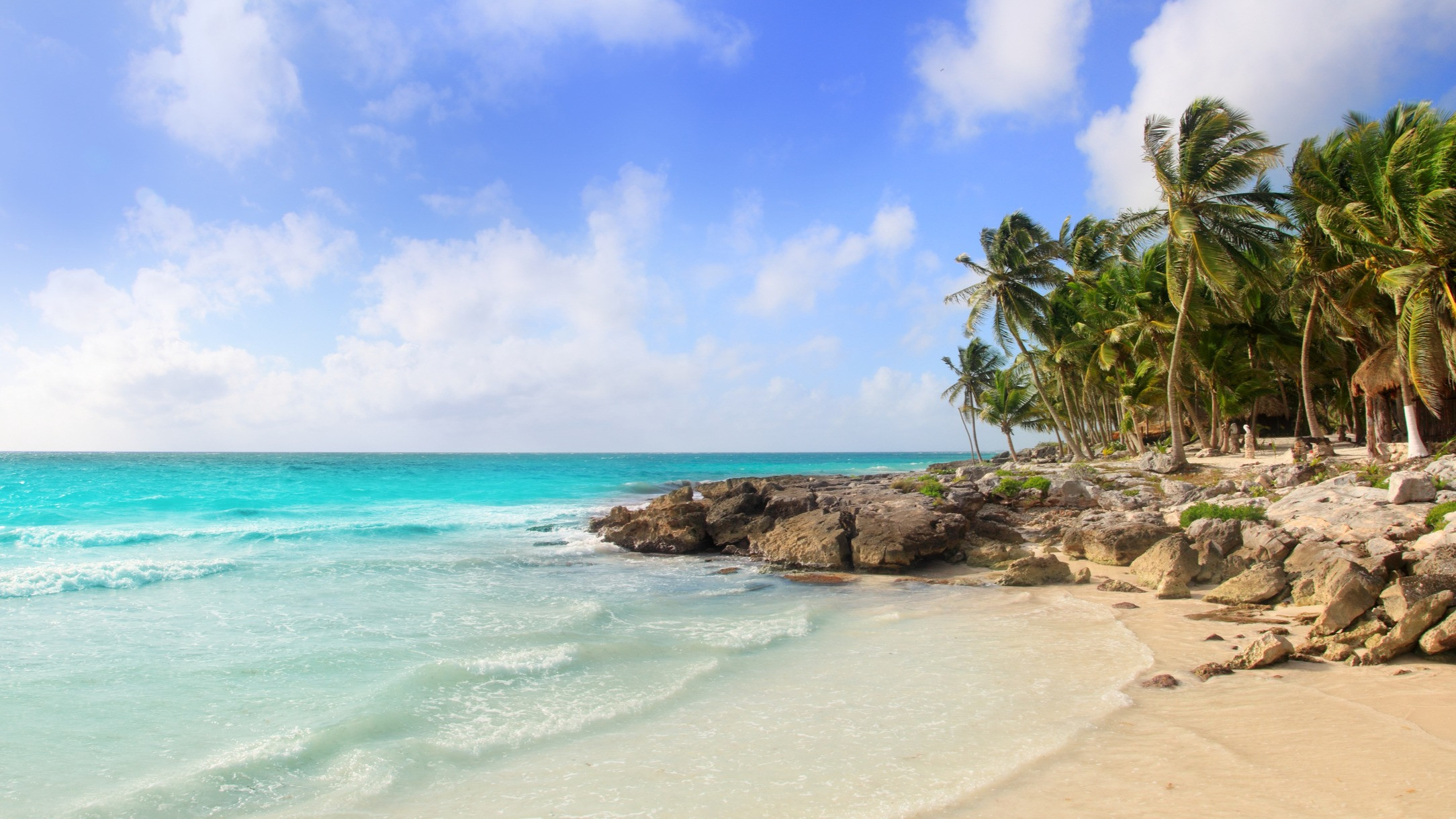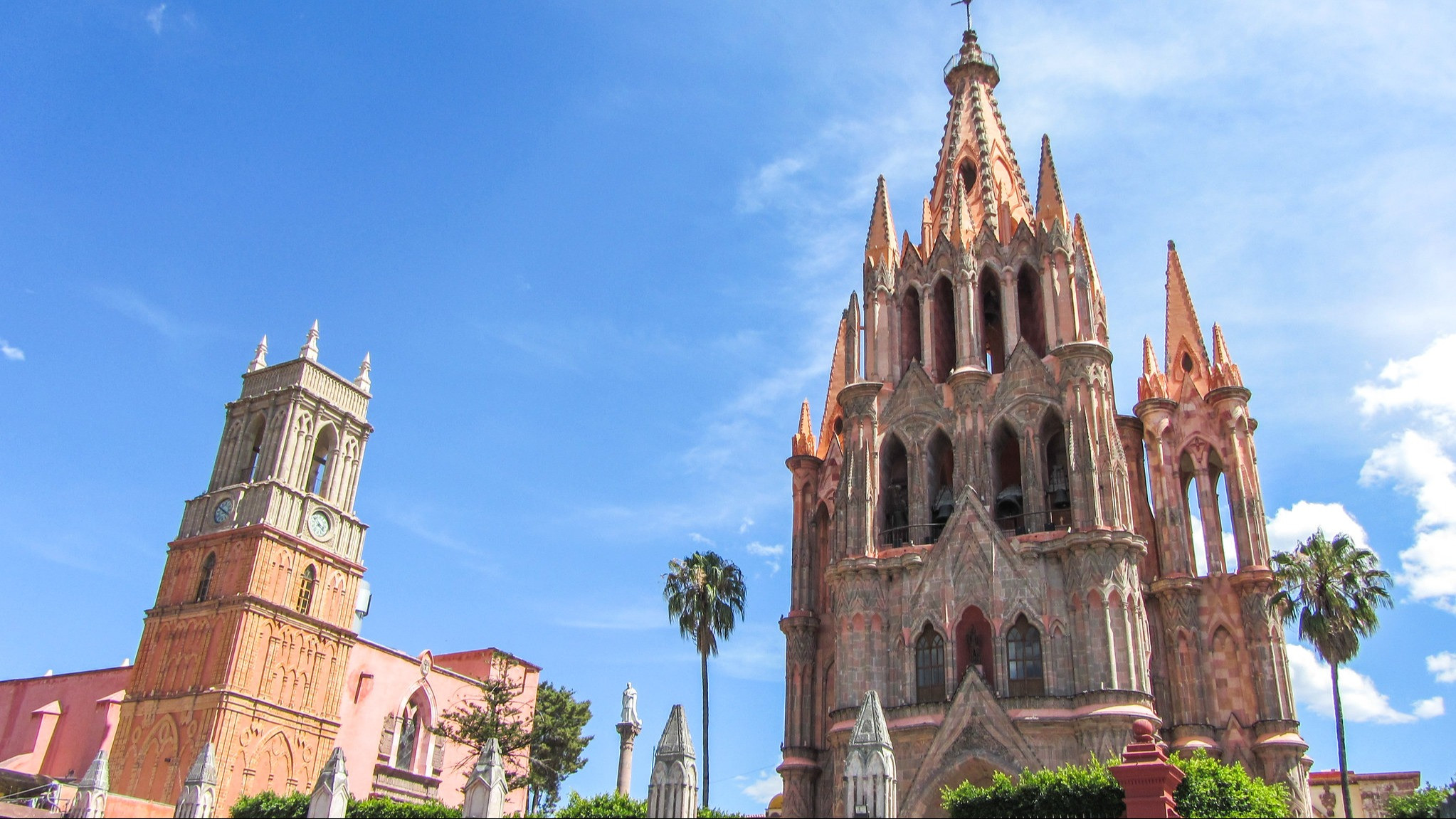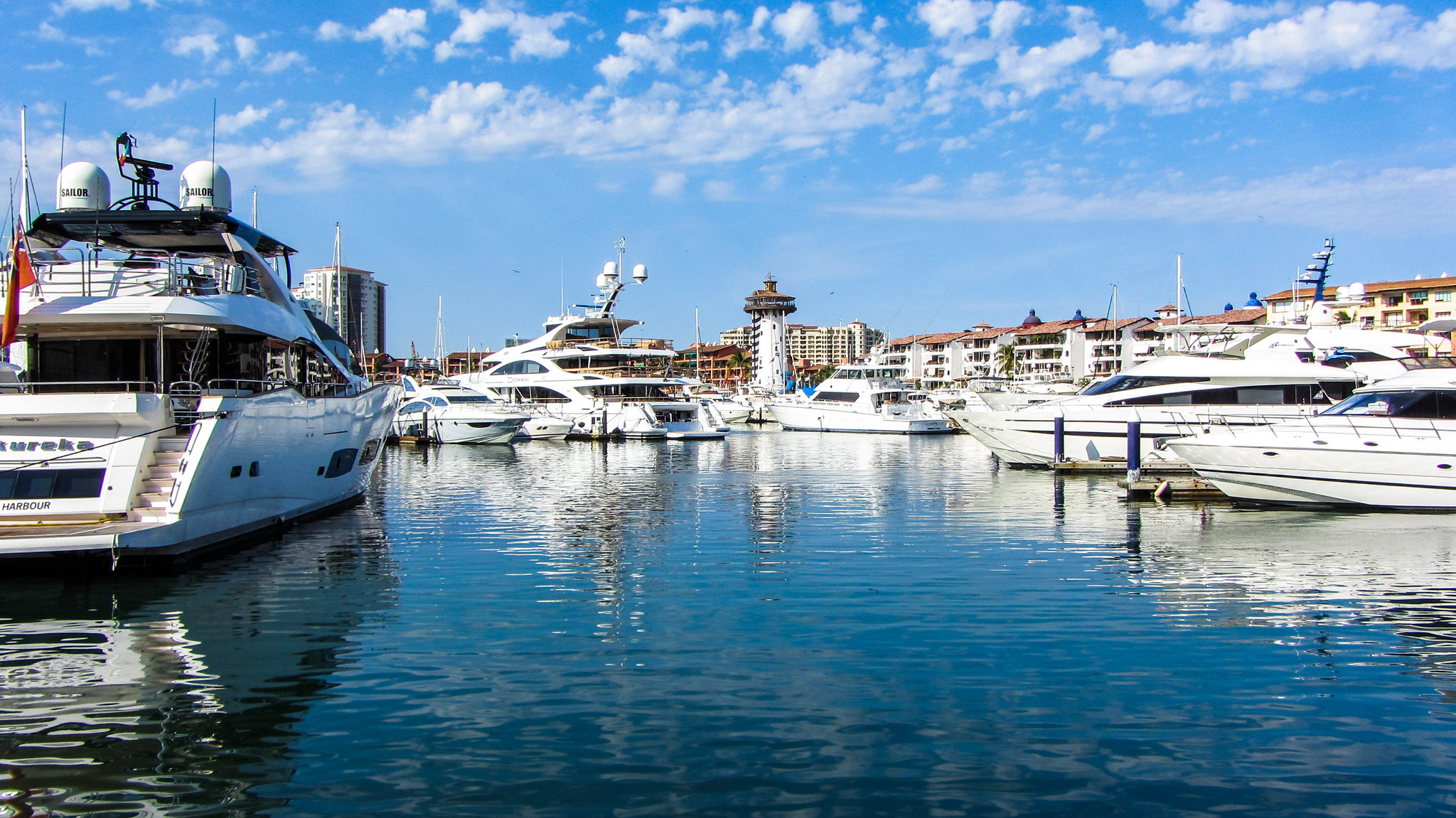Can non-citizens buy property in Mexico? Absolutely, purchasing property in Mexico is possible for foreigners, offering LGBTQ+ individuals and others the chance to own a piece of this vibrant country. Gaymexico.net is here to guide you through the process, ensuring a smooth and informed experience.
Whether you’re dreaming of a beachfront condo in Puerto Vallarta or a colonial home in San Miguel de Allende, understanding the legalities, taxes, and best locations will empower you to make confident decisions. Let’s explore the opportunities and navigate the path to your Mexican dream property with this comprehensive guide which includes real estate trends, foreign ownership and expat guide.
1. Understanding Foreign Property Ownership in Mexico
1.1. Is it Legal for Foreigners to Own Property in Mexico?
Yes, it is legal for foreigners to own property in Mexico. Outside of restricted zones, foreigners can hold direct deed to property with the same rights and responsibilities as Mexican nationals. In restricted zones (50 kilometers from shorelines and 100 kilometers from international borders), ownership is facilitated through fideicomisos (bank trust agreements) or Mexican corporations.
Fideicomisos provide a secure and legal way for foreigners to invest in Mexican real estate, offering similar rights and responsibilities as direct ownership. These trusts are easily transferable when the owner decides to sell.
1.2. What is a Fideicomiso (Bank Trust)?
A fideicomiso is a bank trust agreement that allows foreigners to own property within Mexico’s restricted zones. The title is held by a Mexican bank (the trustee), which acts on the instructions of the beneficiary (the foreign owner). You, as the beneficiary, retain full control and usage rights, including the ability to sell, rent, build on, live on, or pass the property to your heirs.
 Los Cabos, Baja California, Mexico
Los Cabos, Baja California, Mexico
Los Cabos offers stunning landscapes and warm climate, making it a popular choice for foreign property investment.
Fideicomisos are secure and regulated under Mexican banking laws, ensuring the protection of your investment. They are typically set up for 50-year periods and are renewable.
1.3. Direct Deed vs. Fideicomiso: Which is Right for You?
The primary difference lies in the location of the property. Outside the restricted zones, you can hold a direct deed, giving you the same ownership rights as Mexican citizens. Within the restricted zones, a fideicomiso or a Mexican corporation is necessary.
Consider a fideicomiso if:
- You want to own property in a coastal or border area.
- You plan to use the property for residential purposes.
- You want a secure and legally recognized ownership structure.
Direct deed ownership is suitable if:
- The property is located outside the restricted zones.
- You prefer direct ownership without the involvement of a bank trust.
1.4. How Can gaymexico.net Help You Navigate Mexican Real Estate?
Gaymexico.net is your dedicated resource for navigating the Mexican real estate market, especially tailored for the LGBTQ+ community. We offer:
- Guidance on finding LGBTQ+-friendly locations.
- Information on legal aspects and fideicomisos.
- Connections to trusted real estate professionals who understand your needs.
2. Step-by-Step Guide to Buying Property in Mexico
2.1. Step 1: Making an Offer
The initial step involves making an offer, typically through a “promissory agreement” (contrato de promesa) drafted by your attorney. This document outlines the terms of the sale, including the purchase price, payment schedule, and any contingencies.
2.2. Step 2: Earnest Money and Escrow
Once your offer is accepted, you’ll need to set aside 10% to 20% of the purchase price as earnest money, held in escrow by a third party. Avoid giving this money directly to the seller to ensure security.
Several options exist for holding the deposit:
- U.S. Escrow Account: Funds are held in dollars in the U.S. and transferred at closing to avoid exchange rate issues.
- Cashier’s Check: A cashier’s check in the seller’s name is held by your notario or a trusted third party.
- Title Insurance Company: If using title insurance, they often provide escrow services.
2.3. Step 3: Title Insurance
Consider obtaining title insurance to protect against potential title defects or encumbrances. While not always widely available in Mexico, it provides an extra layer of security by thoroughly investigating the property’s title history.
2.4. Step 4: Notary Investigation and Contract
The notario (a specialized lawyer in Mexico) will investigate the title, obtain an appraisal, and prepare the closing papers. Your attorney should draft a purchase sales agreement (contrato de compraventa). Ensure the Spanish version is checked and explained to you, as it is the legally binding document.
The notario will verify the property’s title by requesting:
- Copy of the title deed.
- Lien certificate (certificado de libertad de gravamenes).
- Non-lien certificate (certificado de no adeudo) from the local tax authority.
Also, ensure you have copies of paid utility bills from the seller, as unpaid bills remain attached to the property.
2.5. Step 5: Closing the Deal
Meet with the notario, seller, and your attorney to sign the purchase sales agreement. Bring a check for the remaining payment or have the funds transferred from the escrow account. You will receive the deed (escritura) once the payment is complete.
2.6. Step 6: Registering Ownership
The notario registers your deed with the land registry office. Follow up to ensure this step is completed properly. Look for a seal on each page and a certificate of registration. You can verify the transaction at the land registry office using the registration number.
2.7. Step 7: Mexican Will
Have your attorney draw up a Mexican will to ensure your Mexican possessions and property are properly disposed of. This saves your heirs time and expense by avoiding lengthy legal processes. If buying in a bank trust, naming beneficiaries in the trust removes the need for probate.
2.8. Step 8: Ministry of Foreign Affairs
Inform the Ministry of Foreign Affairs of your intent to purchase. Your attorney or the notario typically applies for the permit on your behalf.
3. Real Estate Taxes in Mexico: What You Need to Know
3.1. Transfer Tax (Acquisition Tax)
The buyer pays an acquisition tax when property ownership changes. This typically ranges from 3% to 3.3% in areas like the Riviera Maya, but varies by location.
3.2. Inheritance/Gift Tax
Mexico does not impose an estate or inheritance tax. However, there is a tax on certain gifts involving real estate, payable by the recipient, unless the gifts are between spouses or direct family members.
3.3. Property Tax (Predial)
Property tax, known as predial, is quite reasonable compared to U.S. property taxes. It is a local tax, usually payable quarterly, averaging approximately 0.1% of the assessed value of the property at the time of sale.
3.4. Rental Income Tax
If you rent out your Mexican property and do not reside in Mexico, your rental income is taxed at a rate of 25%. For residents, rental income is taxable at regular income tax rates.
3.5. Capital Gains Tax
Capital gains tax is owed when you sell the property, potentially up to 35% of the profit. This can be reduced based on how long you’ve held the property and authorized deductions.
Keep detailed records of capital improvements and obtain official receipts (facturas) to claim deductions.
3.6. Closing Costs
Closing costs are typically paid by the buyer and range from 5% to 9% of the property’s cost. These fees cover:
- Acquisition tax
- Property registration fee
- Tax certificate fee
- Title search fee
- Property appraisal fee
- Notary’s fee
- Miscellaneous clerical fees
- Value-added tax (VAT) on services
The seller usually pays the real estate agent’s fee, which is between 6% and 10% of the sale price.
4. Top Destinations for Buying Real Estate in Mexico
4.1. Riviera Maya
 ©iStock/LUNAMARINA
©iStock/LUNAMARINA
The Riviera Maya boasts stunning beaches, turquoise waters, and a vibrant tourism industry.
The Riviera Maya, stretching south of Cancun to Tulum, features swaying palm trees, powder-sand beaches, and turquoise seas. It includes Playa del Carmen, Akumal, and Tulum, each offering a unique vibe with beautiful Caribbean beaches. The area is rich in Mayan ruins, water parks, and diverse wildlife.
This destination attracts tourists from around the world, providing excellent rental income potential for property owners.
Real Estate Trend Alert (RETA) Expert Ronan McMahon on Real Estate in the Riviera Maya:
The Riviera Maya has undergone a mammoth transformation, driven by a thriving tourism industry with millions of visitors each year. Playa del Carmen and Tulum offer the best investment potential.
4.2. San Miguel de Allende
 San Miguel de Allende
San Miguel de Allende
San Miguel de Allende is renowned for its colonial architecture, vibrant arts scene, and expat community.
San Miguel de Allende, a charming colonial town in the Colonial Highlands, is known for its colorful houses, intimate plazas, and lush tropical flowers. It attracts artists, artisans, and a large expat community, making it easy to get by speaking English.
The city offers a full range of amenities, including chic restaurants, bars, and shops. Its temperate, dry climate is ideal for those seeking a comfortable lifestyle.
RETA Expert Ronan McMahon’s View on Real Estate in San Miguel:
San Miguel is a favorite among expats and draws wealthy individuals from Latin and North America. The international wedding industry is particularly huge, driving demand for high-end rentals.
4.3. Los Cabos
 Los Cabos, Baja California, Mexico
Los Cabos, Baja California, Mexico
Los Cabos combines stunning desert landscapes with luxurious amenities and a reputation for exclusivity.
Los Cabos, where the desert meets the Sea of Cortez and the Pacific Ocean, boasts a warm, dry climate. Known for attracting Hollywood stars and the international jet set, it offers fine dining, luxurious spas, world-class golf, and a reputation for exclusivity.
Today, Los Cabos attracts a diverse range of people, including those seeking second homes and warm winter getaways.
RETA Expert Ronan McMahon’s View on Real Estate in Cabo:
Demand in Cabo has outstripped supply, driven by Zoom Boomers, wealthy retirees, and families. There are restrictions on building, making high-quality real estate deals valuable.
5. Expat Guide to Buying Real Estate in Mexico
5.1. Can the Mexican Government Take Your Land?
The Mexican government cannot arbitrarily take your land. Cases where property has been repossessed from foreigners often involve fraudulent titles. It is crucial to have a competent, honest lawyer protect your interests and ensure the property title is legal and clear.
5.2. Restrictions for Expats Buying Real Estate
As a foreign buyer, you cannot directly own property within 50 kilometers of the high tide line or 100 kilometers of Mexico’s international borders. This property must be held via a Mexican corporation or fideicomiso.
Also, you cannot own ejido land, which is government land granted for use by local members. Converting ejido land to private property is a long and complicated process, requiring specialist legal verification.
5.3. Should You Hold The Title In Your Own Name?
Foreigners can purchase property in Mexico’s “restricted zone” through a fideicomiso. This bank trust grants the title to the bank, which is obliged to follow the instructions of the foreign owner. You retain use and control, with the right to sell, rent, or pass it down to heirs.
 Puerto Vallarta
Puerto Vallarta
Puerto Vallarta offers a welcoming atmosphere and beautiful properties for foreign buyers.
The fideicomiso is very secure, as only authorized banking institutions can serve as trustees. It provides similar rights as direct deed ownership.
Owning property through a trust deed offers advantages, such as listing multiple beneficiaries, allowing easy transfer of control, and avoiding inheritance taxes. Trusts are issued for renewable 50-year periods.
6. Closing Costs in Mexico: A Detailed Breakdown
6.1. Understanding Closing Costs
Once your offer is accepted, your attorney will provide an estimate of closing costs, which are your responsibility as the buyer. The estimate may vary due to fluctuations in exchange rates.
Buyers typically pay about half of the estimated closing costs in advance to cover the notary’s expenses.
6.2. Common Closing Costs
Closing costs in Mexico generally range from 5% to 9% of the purchase price, higher if a mortgage is involved. These costs include:
- Transfer Tax: 3% to 3.3% in the Riviera Maya.
- Trustee Bank Fee: Around $2,200, including permits and annual fees.
- Appraisal for Future Tax Assessment: Varies based on property size.
- Non-Encumbrance Certificate: Approximately $50.
- Preventative Notice Advice: About $130.
- Public Registry Fees: Approximately $350.
- Notary’s Fee: Varies from 0.5% to 1% of the transaction size.
The seller is responsible for real estate fees and capital gains taxes, while the buyer covers all closing costs.
7. Resources and Support for LGBTQ+ Property Buyers in Mexico
7.1. LGBTQ+-Friendly Destinations in Mexico
Mexico boasts several welcoming destinations for the LGBTQ+ community, each offering unique charm and amenities:
- Puerto Vallarta: Known as one of the most gay-friendly cities in the world, Puerto Vallarta offers a vibrant LGBTQ+ scene, beautiful beaches, and a range of real estate options.
- Mexico City: The capital city has a thriving LGBTQ+ community, with numerous gay bars, clubs, and cultural events.
- Guadalajara: Another major city with a significant LGBTQ+ presence, Guadalajara offers a mix of traditional Mexican culture and modern amenities.
- San Miguel de Allende: This colonial town is popular with expats and offers a welcoming environment for LGBTQ+ individuals.
7.2. Working with LGBTQ+-Friendly Real Estate Agents
Partnering with a real estate agent who understands and respects the LGBTQ+ community is essential. These agents can provide:
- Guidance on LGBTQ+-friendly neighborhoods.
- Assistance with legal and financial aspects.
- Connections to local LGBTQ+ networks and resources.
7.3. gaymexico.net: Your Partner in Finding the Perfect Property
Gaymexico.net is committed to providing comprehensive support and resources for LGBTQ+ individuals looking to buy property in Mexico. We offer:
- Listings of LGBTQ+-friendly properties for sale.
- Guides to LGBTQ+-friendly destinations and neighborhoods.
- Connections to trusted real estate agents and legal professionals.
- Information on LGBTQ+ events and community resources.
8. Frequently Asked Questions (FAQ) about Buying Property in Mexico
8.1. Can I get a mortgage in Mexico as a foreigner?
Yes, it is possible, but it can be more challenging. Mexican banks may offer mortgages to foreigners, but they typically require a larger down payment and have stricter requirements than in the U.S. or Canada. Many foreigners opt for financing through U.S. or Canadian institutions or pay in cash.
8.2. What are the annual fees for a fideicomiso?
Maintenance fees for a fideicomiso typically range from $700 to $800 per year. Initial setup costs may run a few thousand dollars.
8.3. How long does it take to complete a real estate transaction in Mexico?
The timeline can vary, but typically, a real estate transaction in Mexico takes between 60 to 90 days to complete. This includes the time for title investigation, appraisal, and registration.
8.4. Can I rent out my property in Mexico?
Yes, you can rent out your property. Popular tourist destinations like the Riviera Maya, San Miguel de Allende, and Los Cabos offer excellent rental income potential.
8.5. Do I need a Mexican bank account to buy property?
While not always required, having a Mexican bank account can simplify transactions and payments related to your property, such as property taxes and utility bills.
8.6. What should I look for in a real estate attorney in Mexico?
Choose an attorney who is:
- Fluent in both English and Spanish.
- Experienced in Mexican real estate law.
- Knowledgeable about fideicomisos and foreign ownership.
- Reputable and has a track record of successful transactions.
8.7. How can I ensure my property is safe from squatters?
Take steps to protect your property, such as:
- Regularly visiting the property or hiring a property manager.
- Maintaining the property to make it appear occupied.
- Paying property taxes and utility bills on time.
- Working with local authorities if you suspect any squatting activity.
8.8. What are the common pitfalls to avoid when buying property in Mexico?
- Not conducting thorough title research.
- Failing to obtain title insurance.
- Using an unqualified or dishonest real estate agent or attorney.
- Ignoring local laws and regulations.
- Not understanding the terms of the fideicomiso or purchase agreement.
8.9. Can I buy property in Mexico if I am not a resident?
Yes, you do not need to be a resident to buy property in Mexico. You can purchase property as a non-resident through a fideicomiso or a Mexican corporation.
8.10. What is ejido land and why should I avoid it?
Ejido land is communal land granted by the Mexican government to local communities. It is not private property and can be difficult and risky to purchase. Avoid buying ejido land unless it has been properly privatized and has a clear title history.
9. Conclusion: Your Dream Property in Mexico Awaits
Buying property in Mexico is an achievable dream, especially with the right guidance and resources. Whether you are drawn to the vibrant beaches of the Riviera Maya, the colonial charm of San Miguel de Allende, or the luxurious landscapes of Los Cabos, Mexico offers a diverse range of opportunities for LGBTQ+ individuals and others seeking a slice of paradise. With gaymexico.net, you can confidently navigate the process, find your perfect property, and embrace the beauty and culture of Mexico.
Ready to take the next step? Explore our listings, connect with our trusted real estate partners, and discover the possibilities that await you in Mexico. Visit gaymexico.net today!
Address: 3255 Wilshire Blvd, Los Angeles, CA 90010, United States
Phone: +1 (213) 380-2177
Website: gaymexico.net
